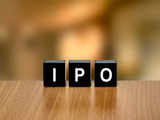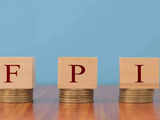Suggest a new Definition
Proposed definitions will be considered for inclusion in the Economictimes.com
Equity
- PREV DEFINITION
- NEXT DEFINITIONEquity DilutionEquity dilution refers to the cut down in the stock holding of shareholders in relative terms of a particular company.Read More
What is 'Equity'
Equity
Equity is the amount of money that a company's owner has put into it or owns. On a company's balance sheet, the difference between its liabilities and assets shows how much equity the company has. The share price or a value set by valuation experts or investors is used to figure out the equity value. This account is also called owners' equity, stockholders' equity, or shareholders' equity.
What does equity mean?
Equity, also called shareholders' equity or owners' equity for privately held corporations, is the amount of money given to a company's shareholders if all of its assets were sold and all of its debts were paid off. In the case of an acquisition, it is the value of the company's income minus any debts that are not part of the deal. A company's book value could also be its shareholders' equity. Equity is one of the most common ways that analysts judge a business's financial health. The value of equity is determined from the balance sheet of the company.
The Way Owner Equity Works
The equity equation determines the current situation of the company. It does this by comparing exact numbers that show what the company owns and what it owes. A company raises money by selling shares, which are used to invest in projects, and pay for operations. The company's assets grow as a result.
A company can get money by issuing debt (like loans or bonds) or stock (by selling a stock). Most investors choose equity investments because they give them a bigger chance to benefit from a company's growth and profits.
Equity is important because it shows how much an investor has invested in a business based on how many shares they own. When you own stock in a company, you can make capital gains and get dividends. Also, if a person owns equities, he or she can vote on how the company is run and who should be on the board. Because of these benefits, shareholders are more likely to stay involved with the organization.
There may be negative or positive shareholder equity. If it's negative, the company's debts are greater than its assets. If this keeps happening, the company is said to be insolvent. Investors usually don't want to put their money into companies with negative shareholder equity
Shareholder equity alone is not a good way to tell how healthy a company's finances are. Still, when combined with other tools and measures, an investor can get a good idea of how healthy the company is.
How to figure out shareholder equity and what formula to use?
Using the accounting equation, you can use the following formula and calculation to figure out a company's equity:
Owners' equity = total assets - total liabilities
This information can be found on the balance sheet, where you should do the following four things:
Shareholder equity is also the sum of a company's share capital, retained earnings, and the value of its treasury shares. This method is less common, though. The use of a company's total assets and total liabilities is a better indicator of its financial health than just the use of its total assets.
Ownership and Equity Components
The percentage of net income not dispersed as dividends is known as retained profits, and it is a component of shareholder equity. If you think of the profits that have been set aside or saved for the future as retained earnings, you're on the right track. As the company continues to invest a portion of its profits, retained earnings grow. Stockholders' equity contributions may one day exceed the amount of cumulative retained earnings. For companies that have been around for a long time, stockholders' equity tends to be dominated by the value of the company's retained earnings.
Different kinds of equity
The idea of equity is important for more than just judging a company. In a broader sense, equity is a way to figure out how much you own of any asset after you take away all the debts that go with it.
Here are some of the most common types of equity:
What is equity in a business?
Equity is the value that is given to a company's shareholders in terms of finance and accounting. The book value of equity is found by taking the difference between equity and assets. Getting an accurate picture of assets and liabilities. Liabilities are legal obligations or debts that the company has to pay.
What is equity in a balance sheet?
In a balance sheet, the equity is the book value of the shareholder's assets after the liabilities are removed.
Why is equity so important?
Equity is an important measure to ascertain the value of the shareholder's funds. When combined with other factors, it gives an idea of the value of a company.
What is a company's market cap, and is it the same as equity?
The market cap of the company is the market value of the company. In other words, it is the value of the equity as determined by the market.
Disclaimer: This content is authored by an external agency. The views expressed here are that of the respective authors/ entities and do not represent the views of Economic Times (ET). ET does not guarantee, vouch for or endorse any of its contents nor is responsible for them in any manner whatsoever. Please take all steps necessary to ascertain that any information and content provided is correct, updated and verified. ET hereby disclaims any and all warranties, express or implied, relating to the report and any content therein.
Equity is the amount of money that a company's owner has put into it or owns. On a company's balance sheet, the difference between its liabilities and assets shows how much equity the company has. The share price or a value set by valuation experts or investors is used to figure out the equity value. This account is also called owners' equity, stockholders' equity, or shareholders' equity.
What does equity mean?
Equity, also called shareholders' equity or owners' equity for privately held corporations, is the amount of money given to a company's shareholders if all of its assets were sold and all of its debts were paid off. In the case of an acquisition, it is the value of the company's income minus any debts that are not part of the deal. A company's book value could also be its shareholders' equity. Equity is one of the most common ways that analysts judge a business's financial health. The value of equity is determined from the balance sheet of the company.
The Way Owner Equity Works
The equity equation determines the current situation of the company. It does this by comparing exact numbers that show what the company owns and what it owes. A company raises money by selling shares, which are used to invest in projects, and pay for operations. The company's assets grow as a result.
A company can get money by issuing debt (like loans or bonds) or stock (by selling a stock). Most investors choose equity investments because they give them a bigger chance to benefit from a company's growth and profits.
Equity is important because it shows how much an investor has invested in a business based on how many shares they own. When you own stock in a company, you can make capital gains and get dividends. Also, if a person owns equities, he or she can vote on how the company is run and who should be on the board. Because of these benefits, shareholders are more likely to stay involved with the organization.
There may be negative or positive shareholder equity. If it's negative, the company's debts are greater than its assets. If this keeps happening, the company is said to be insolvent. Investors usually don't want to put their money into companies with negative shareholder equity
Shareholder equity alone is not a good way to tell how healthy a company's finances are. Still, when combined with other tools and measures, an investor can get a good idea of how healthy the company is.
How to figure out shareholder equity and what formula to use?
Using the accounting equation, you can use the following formula and calculation to figure out a company's equity:
Owners' equity = total assets - total liabilities
This information can be found on the balance sheet, where you should do the following four things:
- Find the company's total assets on the balance sheet for the period.
- On the balance sheet, each type of liability should be listed separately.
- To find the shareholders' equity, take the total liabilities and subtract them from the total assets.
- Keep in mind that you will get the total assets if you add up all of the debts and all of the equity.
Shareholder equity is also the sum of a company's share capital, retained earnings, and the value of its treasury shares. This method is less common, though. The use of a company's total assets and total liabilities is a better indicator of its financial health than just the use of its total assets.
Ownership and Equity Components
The percentage of net income not dispersed as dividends is known as retained profits, and it is a component of shareholder equity. If you think of the profits that have been set aside or saved for the future as retained earnings, you're on the right track. As the company continues to invest a portion of its profits, retained earnings grow. Stockholders' equity contributions may one day exceed the amount of cumulative retained earnings. For companies that have been around for a long time, stockholders' equity tends to be dominated by the value of the company's retained earnings.
Different kinds of equity
The idea of equity is important for more than just judging a company. In a broader sense, equity is a way to figure out how much you own of any asset after you take away all the debts that go with it.
Here are some of the most common types of equity:
- A share of ownership in a company, shown by a stock or other security.
- On a company's balance sheet, this is the amount of money given by the owners or shareholders plus the amount of money that the company has kept (or losses). This is sometimes called "shareholder equity" or "equity of stockholders."
- The difference between the value of the securities in a margin account and the amount borrowed from the brokerage for margin trading.
- The difference between how much a house is worth right now and how much is still owed on its mortgage. The amount the owner would get after the property is sold and any liens are paid. The same thing can also be called "actual property value."
- When a company goes bankrupt and has to be liquidated, the amount left over after creditors are paid in equity. This type of investment is also called "risk capital" or "liable capital."
What is equity in a business?
Equity is the value that is given to a company's shareholders in terms of finance and accounting. The book value of equity is found by taking the difference between equity and assets. Getting an accurate picture of assets and liabilities. Liabilities are legal obligations or debts that the company has to pay.
What is equity in a balance sheet?
In a balance sheet, the equity is the book value of the shareholder's assets after the liabilities are removed.
Why is equity so important?
Equity is an important measure to ascertain the value of the shareholder's funds. When combined with other factors, it gives an idea of the value of a company.
What is a company's market cap, and is it the same as equity?
The market cap of the company is the market value of the company. In other words, it is the value of the equity as determined by the market.
Disclaimer: This content is authored by an external agency. The views expressed here are that of the respective authors/ entities and do not represent the views of Economic Times (ET). ET does not guarantee, vouch for or endorse any of its contents nor is responsible for them in any manner whatsoever. Please take all steps necessary to ascertain that any information and content provided is correct, updated and verified. ET hereby disclaims any and all warranties, express or implied, relating to the report and any content therein.
- PREV DEFINITION
- NEXT DEFINITIONEquity DilutionEquity dilution refers to the cut down in the stock holding of shareholders in relative terms of a particular company.Read More
Related News
 HDFC Bank invests in anchor round of this high-demand SME IPO with over 100% GMPHDFC Bank has been allocated approximately 1.58 lakh shares worth Rs 3 crore at Rs 190 each in the anchor round of the Ganesh Green Bharath IPO, which opened for subscription recently. Other notable investors in the anchor round include Copthall Mauritius Investment, India Equity Fund, and Craft Emerging Market Fund.
HDFC Bank invests in anchor round of this high-demand SME IPO with over 100% GMPHDFC Bank has been allocated approximately 1.58 lakh shares worth Rs 3 crore at Rs 190 each in the anchor round of the Ganesh Green Bharath IPO, which opened for subscription recently. Other notable investors in the anchor round include Copthall Mauritius Investment, India Equity Fund, and Craft Emerging Market Fund. Staggered bets in multi-asset MFs look apt amid bullish sentimentExperts advocate cautious investment in multi-asset schemes like ICICI Pru Multi Asset and Kotak Multi Asset Allocator, especially in uncertain markets with rising gold prices and unexpected shifts, for diversified long-term gains.
Staggered bets in multi-asset MFs look apt amid bullish sentimentExperts advocate cautious investment in multi-asset schemes like ICICI Pru Multi Asset and Kotak Multi Asset Allocator, especially in uncertain markets with rising gold prices and unexpected shifts, for diversified long-term gains. How is an active fund manager different from a passive one?A fund manager is a part of the investment team at a fund house and one of the most important persons responsible for building the portfolio, monitoring it, generating returns and ensuring it runs in line with the objectives and mandate of the fund.
How is an active fund manager different from a passive one?A fund manager is a part of the investment team at a fund house and one of the most important persons responsible for building the portfolio, monitoring it, generating returns and ensuring it runs in line with the objectives and mandate of the fund. Tesla shares rally over 10% as quarterly deliveries beat estimatesTesla on Tuesday reported a smaller-than-expected 5% drop in vehicle deliveries in the second quarter, as the electric-vehicle maker's price cuts and incentives helped stimulate demand.
Tesla shares rally over 10% as quarterly deliveries beat estimatesTesla on Tuesday reported a smaller-than-expected 5% drop in vehicle deliveries in the second quarter, as the electric-vehicle maker's price cuts and incentives helped stimulate demand. Quant Mutual Fund probe: Should you stay invested or exit your investment?All things considered, and drawing parallels with the past cases, there is little logic in investors rushing to exit Quant funds based on what we know so far. While it’s possible that the circumstances may be worse than they currently appear to be, a wait and watch approach might be the most prudent policy at this stage.
Quant Mutual Fund probe: Should you stay invested or exit your investment?All things considered, and drawing parallels with the past cases, there is little logic in investors rushing to exit Quant funds based on what we know so far. While it’s possible that the circumstances may be worse than they currently appear to be, a wait and watch approach might be the most prudent policy at this stage. Quant Mutual Fund probe: Should you stay invested or exit your investment?All things considered, and drawing parallels with the past cases, there is little logic in investors rushing to exit Quant funds based on what we know so far. While it’s possible that the circumstances may be worse than they currently appear to be, a wait and watch approach might be the most prudent policy at this stage.
Quant Mutual Fund probe: Should you stay invested or exit your investment?All things considered, and drawing parallels with the past cases, there is little logic in investors rushing to exit Quant funds based on what we know so far. While it’s possible that the circumstances may be worse than they currently appear to be, a wait and watch approach might be the most prudent policy at this stage. FMCG is “passe”: Indian economy has a new definition of defensive stocks: 8 stocks from 2 sectors with upside scope of up to 37%On the day of election results were announced and the whole stock market melted, stocks from one sector were able to gain, that was FMCG. Many theories were floated about why they are doing well. Right from them being defensive stocks to that focus would not shift from investment to consumption. But close to a month down the line, all those stocks are once again in the under performance mode. The fact is before deciding on whether the stocks are defensive or not, some questions need to be asked. A stock which was a defensive stock in 1994 when the Indian economy was just opening is still a defensive stock even in 2024 when we are a whole different economy with different needs and consumption patterns.
FMCG is “passe”: Indian economy has a new definition of defensive stocks: 8 stocks from 2 sectors with upside scope of up to 37%On the day of election results were announced and the whole stock market melted, stocks from one sector were able to gain, that was FMCG. Many theories were floated about why they are doing well. Right from them being defensive stocks to that focus would not shift from investment to consumption. But close to a month down the line, all those stocks are once again in the under performance mode. The fact is before deciding on whether the stocks are defensive or not, some questions need to be asked. A stock which was a defensive stock in 1994 when the Indian economy was just opening is still a defensive stock even in 2024 when we are a whole different economy with different needs and consumption patterns. Gujarat-based packaging equipment firm Mamata Machinery files IPO papers with SebiPackaging equipment manufacturer Mamata Machinery Ltd has filed preliminary papers with capital markets regulator Sebi to float an initial public offering (IPO). The Gujarat-based company's initial share sale is entirely an offer for sale (OFS) of 73.82 lakh equity shares by promoters, according to the draft red herring prospectus (DRHP).
Gujarat-based packaging equipment firm Mamata Machinery files IPO papers with SebiPackaging equipment manufacturer Mamata Machinery Ltd has filed preliminary papers with capital markets regulator Sebi to float an initial public offering (IPO). The Gujarat-based company's initial share sale is entirely an offer for sale (OFS) of 73.82 lakh equity shares by promoters, according to the draft red herring prospectus (DRHP). FPIs invest Rs 26,565 crore in Indian equities in JunAfter two months of net outflow, foreign investors turned buyers in June, infusing Rs 26,565 crore in Indian equities, driven by political stability and a sharp rebound in markets.
FPIs invest Rs 26,565 crore in Indian equities in JunAfter two months of net outflow, foreign investors turned buyers in June, infusing Rs 26,565 crore in Indian equities, driven by political stability and a sharp rebound in markets. Emcure Pharma announces price band for Rs 1,952-crore IPO at Rs 960-1,008/share. Check GMP, other detailsEmcure Pharmaceuticals has announced its initial public offering (IPO) with a price band of Rs 960 to Rs 1,008 per equity share. The subscription for the IPO will open on Wednesday, July 3, and close on Friday, July 5. The floor price and cap price of the issue are set at 96 times and 100.80 times the face value of the equity shares, respectively.
Emcure Pharma announces price band for Rs 1,952-crore IPO at Rs 960-1,008/share. Check GMP, other detailsEmcure Pharmaceuticals has announced its initial public offering (IPO) with a price band of Rs 960 to Rs 1,008 per equity share. The subscription for the IPO will open on Wednesday, July 3, and close on Friday, July 5. The floor price and cap price of the issue are set at 96 times and 100.80 times the face value of the equity shares, respectively.
Load More